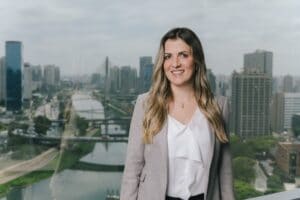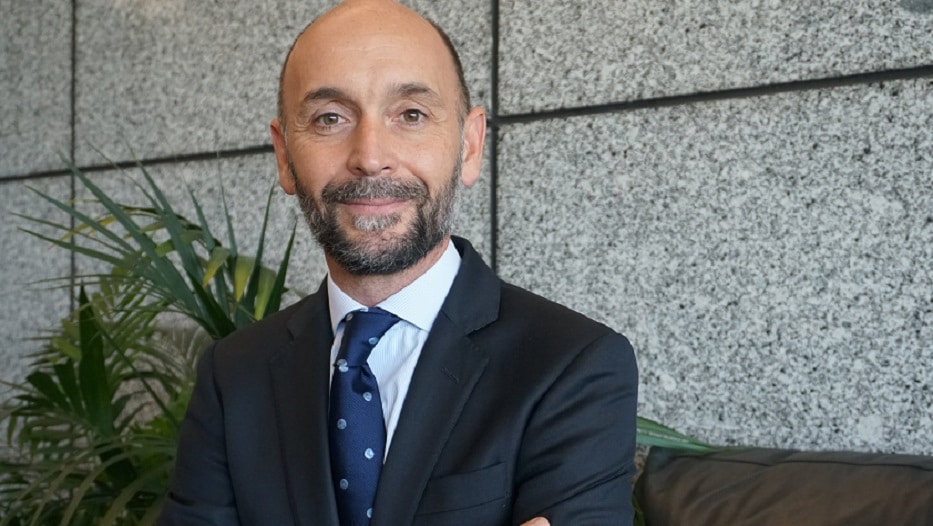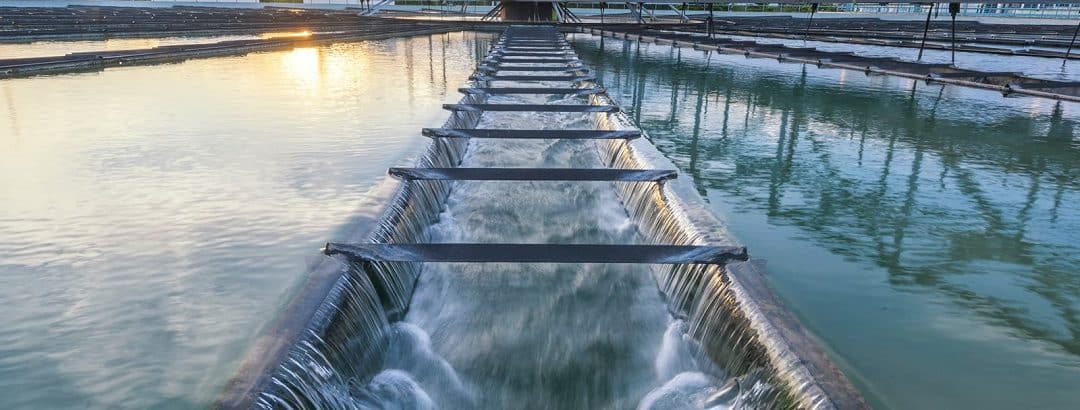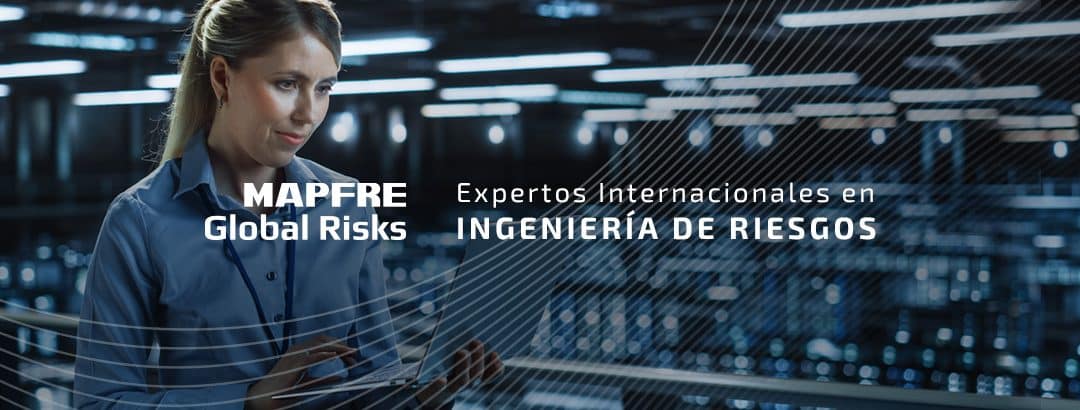Adán Cubillo Hurtado | 20/04/2022
In conversation with the Brazilian publication, Bosco spoke about the global scenario for large risks, the potential of the Brazilian market, and discussed the public commitments made by the company in terms of sustainability, among other issues.
“We have a clear objective to continue growing the global risk operation, which as of today should be around 7% of the Group in terms of premiums, which is good, since we do not have the goal to be the largest Unit in the Group. The largest is Insurance, but we have the focus of reaching the proportionate position for MAPFRE in the markets,” Bosco said.
In addition, Patricia Siequeroli, Director of Property & Casualty and Large Risks at MAPFRE Brazil, also participated in the conversation. She underscored MAPFRE’s differentiating factors and the strength of our company to operate in Brazil.
“MAPFRE’s idea is to seek long-term operations (…), and this largely governs the way we work internally, with the broker and with the customer. If the customer has a problem, we don’t penalize them the following year; because of this we have a very high policy renewal rate. We also take great advantage of the innovation knowledge that comes from Spain and that is shared with us,” said Patricia.
Please find attached a transcript of the interview in English, as well as the link to the website with the full interview.
——-
In Brazil, Bosco Francoy, CEO of MAPFRE GLOBAL RISKS, granted an exclusive interview to ‘Cobertura Mercado de Seguros’. On that occasion, he talked about the global scenario for major risks, the reasons for some accepting the market decline and the public commitments made by the company which has contributed to the improvement of the insureds.
“Today, the scenario is extremely challenging. We were getting out of the pandemic, which brought particular situations to different sectors, some were very affected, such as aviation and hospitality, some industrial sectors suffered more and other sectors were actually favored, such as infrastructure and civil construction. Industries were impacted differently. We had a few things that we knew but were not as important in the clauses and we were able to review and reassess exposures,” he stated.
One of the major exposures concerns cyber-attacks. “In fact, MAPFRE suffered a very serious attack on July 15, 2020. We had a very quick response to it, we continued to provide services and we recovered very quickly from the attack. This is what happened in the pandemic with remote work, weakness in systems, this has really activated the exposure and the cyber market has become very restricted in terms of capacity and reduction of limits, which has put a very large pressure on companies.”
The positive side, according to him, was that remote work has generated a faster-than-expected advance in digitizing companies and their risk defenses have greatly improved. Regarding the war between Russia and Ukraine, “MAPFRE has almost zero exposure in both countries, so in insurance terms, we do not have any major concerns. What concerns us is that the impacts on the financial market, interest rate, and inflation can bring pressure on a really important part to insurers which is investments.”
Lack of inputs – Regarding the lack of inputs and components that persists in the market, Francoy explained that the biggest impact is on lost profit coverages. “First, higher costs and inflation create an imbalance to those coverages. Today margins have changed, they are higher, and if the coverage limit is not adapted, it will be restricted and not covered for all risks. Doing this reassessment will bring greater demand for insurance limits”.
Another factor is the question of deductibles and claims. “Deductibles need to be re-evaluated, they have become outdated, because today it is higher due to costs. When it comes to claims, supply chain breakdown causes repair times to be longer and lost profit increases as well. Higher costs bring greater claims compensation”.
Risk decline – “Since 2004, a soft market began, increasingly reducing prices and conditions, but the reinsurance market reassessed underwriting policies again and this brought a tightening in reinsurance program conditions. This has made some activities that, in the past were able to be covered, it is much more difficult today due to the lack of appetite in the market. Sometimes, it is not a matter of price, but capacity.”
A situation that is difficult to explain to the customer who was getting the coverage. “MAPFRE’s profile is very technical, it does the assessment and recommendations to mitigate the risk, but it has activities that customers ask, “Why do all of this if we don’t get the insurance”? It is not only a matter of having a better insurance, in MAPFRE’s view, the insurance serves to replace the claim, but the loss of being idle for five months, for example, is worse than the solution offered by the insurance.”
Public Commitments – Within MAPFRE’s public commitments, he mentioned responsible growth, also in terms of efficiency and innovation. “We have a clear goal of continuing to grow the global risk operation, which today should be around 7% of the group in terms of premiums, which is good because we don’t have the ambition to be the largest unit in the group, the largest is insurance, but we have that appetite to be in that position that fits the size of MAPFRE in the markets.”
In this sense, Francoy highlighted that the Brazilian market has great potential. “Brazil is a continental country, has many operations and MAPFRE is the insurance company that can provide solutions to these markets. One of MAPFRE’s signs is the long-term commitment to the customer, so our growth is also about how we relate to them.”
Also in MAPFRE’s strategic plan is sustainability. “Our area deals with activities that have a lot of exposure and MAPFRE has also made a public commitment not to insure oil, gas, and energy activities, which do not have an energy transition plan for cleaner energy or to meet other objectives, such as the Paris agreement. In our activity, we evaluate customers to mainly fulfill our commitment and to collaborate with this new reality. Assess and demand from customers this commitment to the world.”
 Structure – Patricia Siequeroli, Director of General and Large Risk Insurance at MAPFRE Brasil, participated in the meeting and highlighted a differential of the group. “MAPFRE has a country-by-country policy issuance capability, but in a global universe, which is one of our strengths and we differentiate ourselves a lot from some players. A global customer who is in multiple countries can have their global issue and we can also support that.”
Structure – Patricia Siequeroli, Director of General and Large Risk Insurance at MAPFRE Brasil, participated in the meeting and highlighted a differential of the group. “MAPFRE has a country-by-country policy issuance capability, but in a global universe, which is one of our strengths and we differentiate ourselves a lot from some players. A global customer who is in multiple countries can have their global issue and we can also support that.”
And about the team dedicated to great risks. “It segregates between local and global risks. The Global Risk Team is an extension of the team we have in Spain, with people who are experts by risk type: energy, infrastructure, air, transportation, oil, and gas. It is almost a paired team of the one we have in Spain. I have the underwriters here in Brazil and there is also the entire claims team for the service, which gives the guarantee and the quality of the service, because when we talk about insurance, in the end, the quality of the delivery is in meeting the need for the claim”, she stated.
The focus, according to her, is on long-term partnerships. “MAPFRE has the profile of pursuing long-term operations, we see the importance of the team work, both in improving risk and qualifying for the good of the operation. It’s a long-term process and it really governs the way we work in-house, with the broker and with the client. If the client has a problem, we don’t let him down the next year, a proof of that is the high rate of policy renewals that we have. We have also leveraged the innovation knowledge that comes from Spain to be shared with us”.





